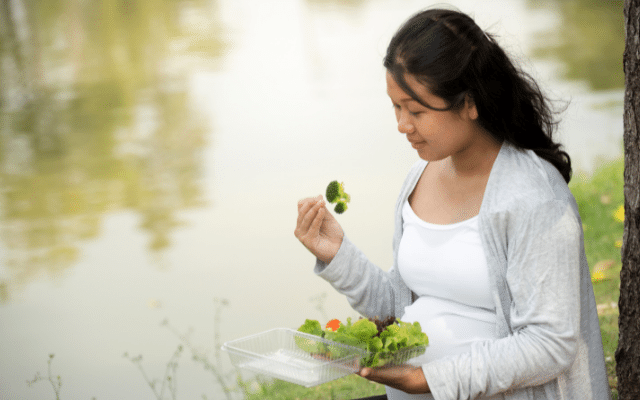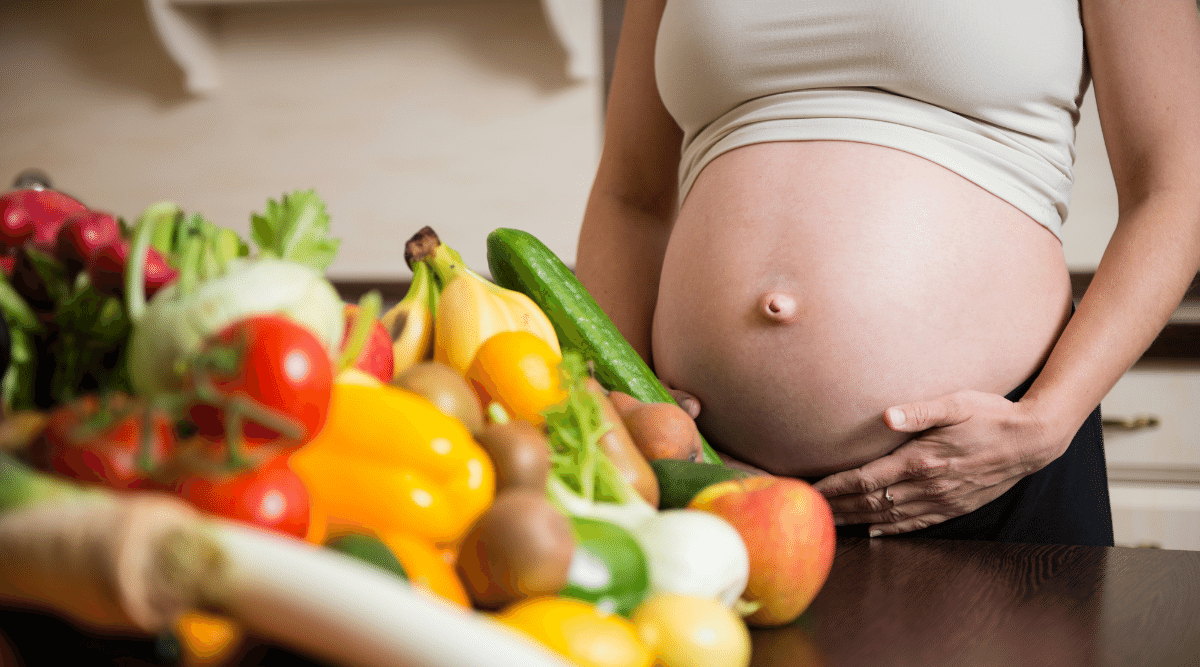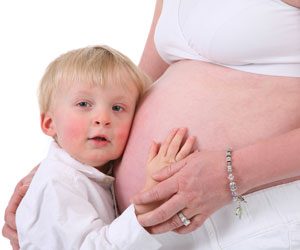Pregnancy is a time when what you eat matters more than ever. Eating organically during pregnancy is considered healthier for you and your baby. But it’s also harder to get organic food, and when you do, it’s much more expensive. So, is it worth it?

Organic farming, pesticides and nutrients
One of the main arguments for eating organic food is to reduce pesticide exposure. Fortunately, in Australia, we closely monitor chemical residues in food, ensuring they are always well below the safe limits. When researchers reviewed 223 studies on organic vs conventionally grown food in 2012, they found that pesticide residue was lower for organic produce. However, there was only a tiny difference between organic and conventional regarding keeping the residue within safe levels.
It’s also worth knowing that organic farmers can still use pesticides. However, they must be natural (instead of synthetic) pesticides like copper, sulphur and pyrethrum. Regardless of whether they are natural or not, some of these pesticides in high doses can also be harmful to humans (all the more reason to wash your fruit and vegetables).
Organic food is also said to have more nutrients. Regarding nutrient content, the 2012 review also found that the only difference between the two types of farming was the phosphorous level, which was higher in the conventional produce, not organic. Another review of the research in 2014 found that organic produce had one advantage – higher antioxidant levels. However, this difference was only present in fruit, and there was no difference in most of the other nutrients or other produce.
The benefits of eating organic food during pregnancy (and conception)
The proposed benefits of organic food begin before the baby’s conception. One study of male organic farmers found a higher proportion of morphologically normal sperm (sperm with the right shape) than non-organic farmers. However, farmers are exposed to higher levels of pesticides than consumers.
In terms of female fertility, eating fruit and vegetables with a high pesticide residue has been linked to a lower chance of pregnancy and live birth in women undergoing IVF. In pregnancy, some research has found that women who eat more organic vegetables have a lower rate of preeclampsia (a severe pregnancy complication). Eating organic food during pregnancy has also been associated with a lower risk of a rare congenital disability – hypospadias (where the opening of the baby boy’s penis is on its underside).
Why it’s hard to prove whether organic food is worth it or not
For several reasons, we can’t prove whether eating organic food during pregnancy is worthwhile or not. One is because the nutrient content of food can vary enormously due to things that have nothing to do with organic farming, which includes where it’s grown, how much rain fell, and how long they stored it. So, it’s difficult to compare apples with apples (pardon the pun).
Another reason is that much of the research we have is correlational, so we can’t use it to conclude that one thing causes another. However, a third factor likely causes people to eat organic food and have better health outcomes. For instance, in a study of pregnant Norwegian women who mainly chose organic food, they turned out to be healthier eaters overall. Not only would they choose the organic apple, but they choose apples more often than chocolate bars.
Plus, women who buy organic food to avoid pesticides probably take other steps to reduce their exposure to chemicals, like choosing ‘low-tox’ cleaning products and toiletries. We don’t know whether it’s the organic produce or these other choices that make the difference. We need better quality research that can separate the effects of these other factors from the impact of organic food.
Other arguments for eating organic during pregnancy
Often people say that organic food tastes better. If that’s true for you, please, go right ahead. However, psychologists argue that your expectation of a food’s tastiness has a vast influence. For example, university students couldn’t tell them apart in blind taste tests of organic vs conventional leafy greens.
There are also social, ethical and environmental arguments for going organic. You might buy organic to support nearby farmers and eat local produce that’s in season, or you might choose it for the environmental benefits. Organic farming appears to be better for ecosystems and the environment. For example, it can improve biodiversity, carbon storage and energy efficiency.
The best way to get more nutrients
The single best thing you can do to improve the nutrients in your diet? Eat more fruit and veg. We don’t know whether organic is better for you. However, we have a vast body of evidence regarding the benefits of eating fresh produce. What’s more, only a tiny percentage of Australians currently eat enough fruit and veg – less than 1 in 10.
If there are advantages in the nutrient content of organic food, eating more fruit and veg, in general, could make up the difference, which means 2 serves of fruit, and 5 serves of vegetables daily – and even more if you’re breastfeeding. One serving of cooked veg is half a cup, or 2.5 cups a day. Check out the Australian Government’s “Healthy eating during pregnancy” guidelines for more specifics on eating well in pregnancy.
Page Published on 10th February 2022




Recent Comments